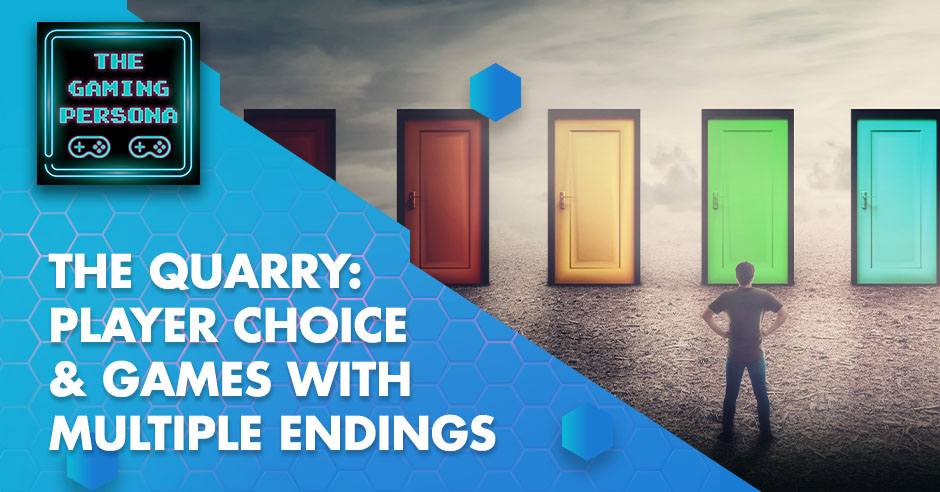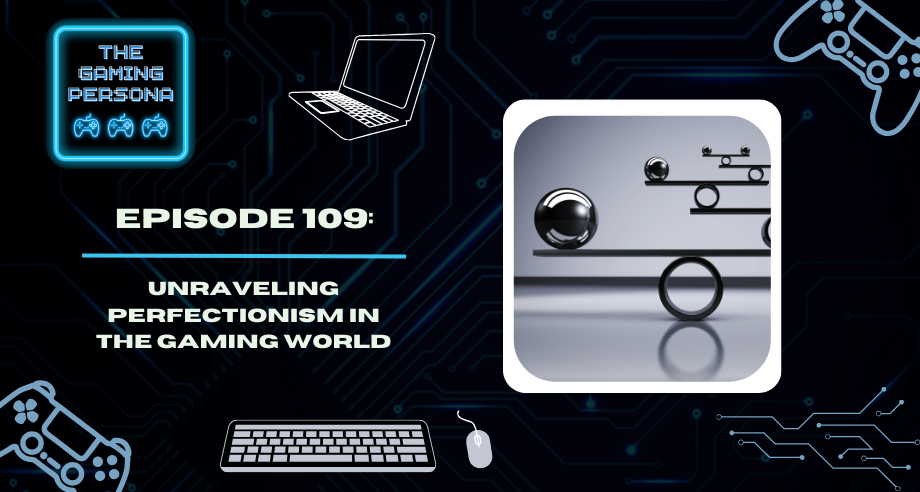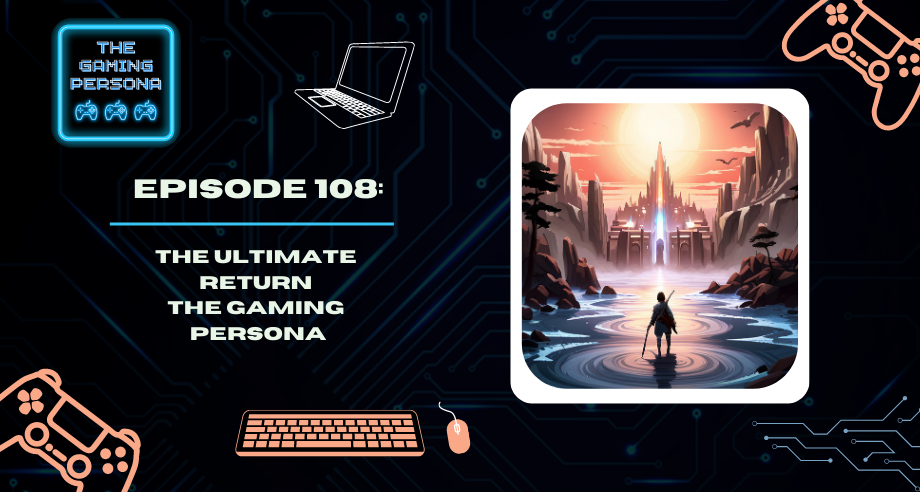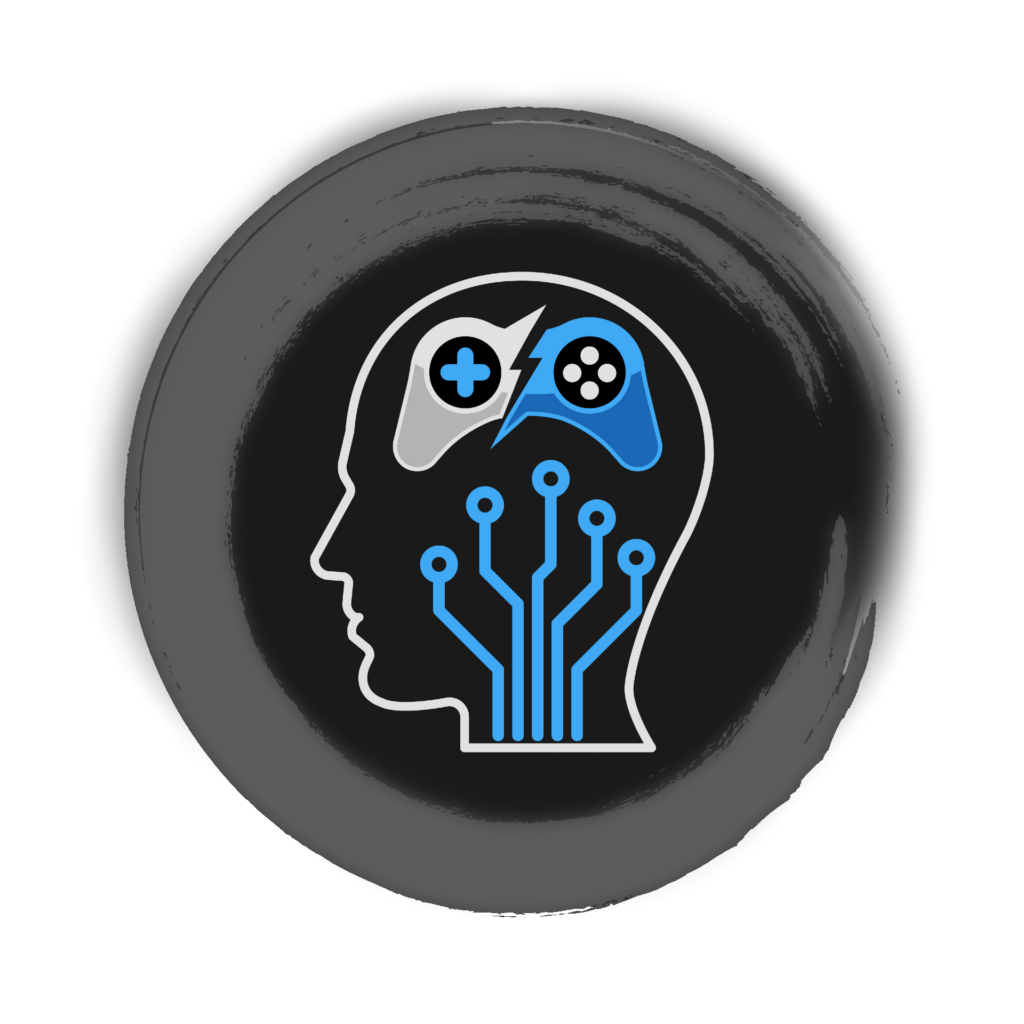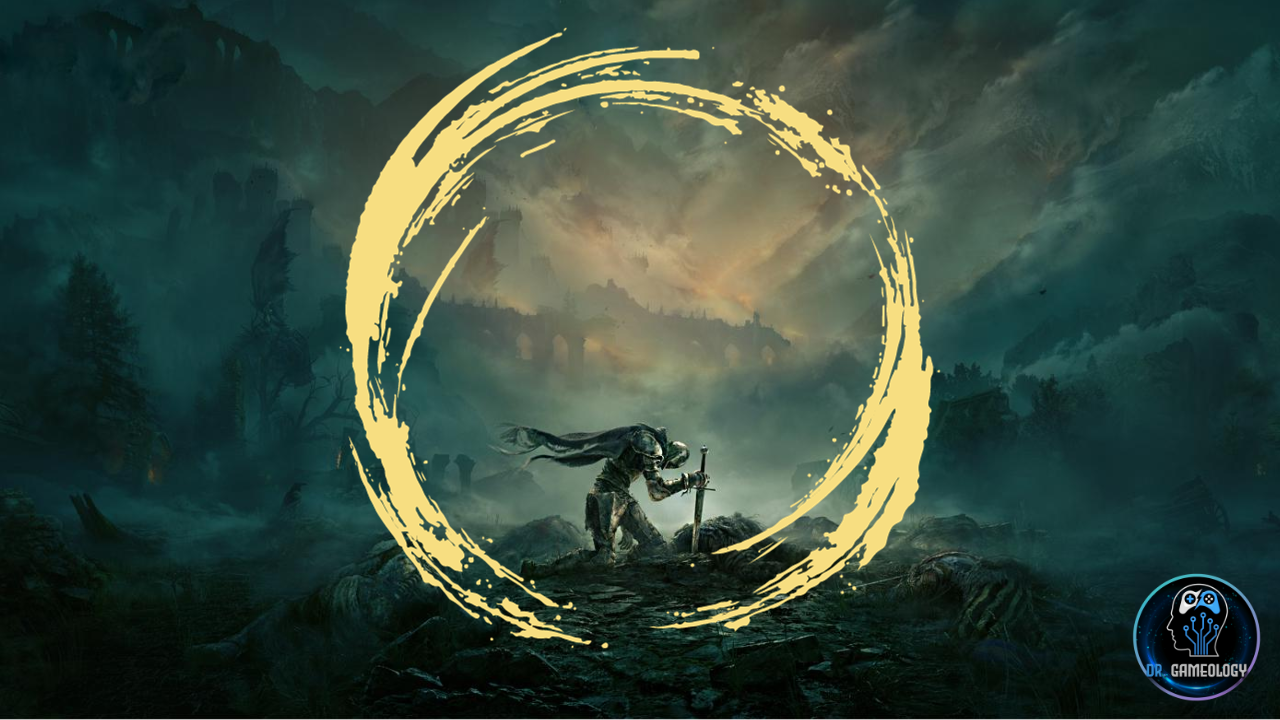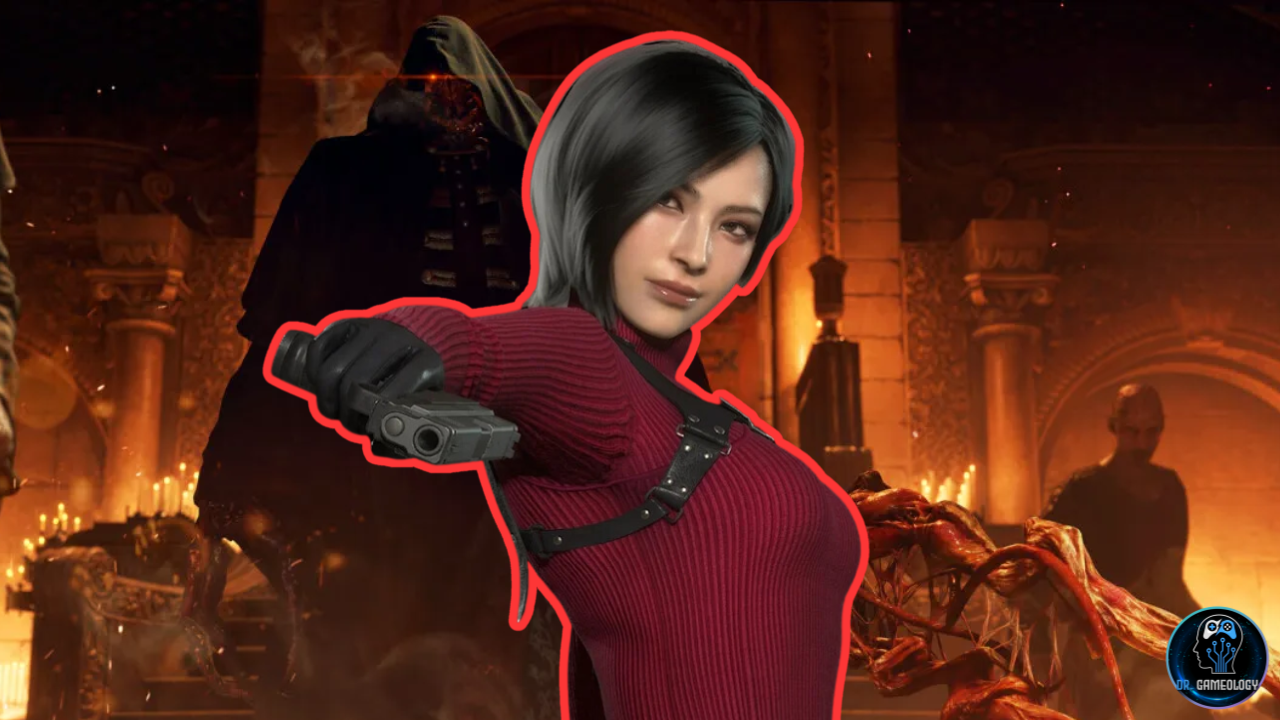The Quarry has been released this month! This decision-based video game with multiple endings features teenagers in a spooky campground trying to survive until the end of the night. Our guest host for the week, Gene Wong, joins Dr. Gameology to review some of their most memorable gaming memories with stories we play using our choices on the screen. Since Gene and Dr. Kaufmann have an extensive background in playing games together, they review how these games have given them goals to fulfill and leaderboards to climb. Player types continue to be a constant force on the show as well, as we explore Gene’s Bard/Acrobat tendencies. Research on how game choices are structured gets covered to identify the many different ways player choice and multiple endings shape some of the most exciting narratives in the past two decades of video game storytelling.
—
Listen to the podcast here
The Quarry: Player Choice & Games With Multiple Endings
Multiple Endings: The first two hours of gameplay from The Quarry, as seen live at Twitch.TV/DrGameology.
Welcome. This is the show for exploring who we become when we play games. I’m your host, Dr. Gameology from Twitch and grad school classrooms across the country. I’m joined by one of my best friends on my gaming journey. We went to school together at one point and conquered a few leaderboards together. I like everyone to get ready and be excited because I have my good friend Gene from all of my shenanigans in SWTOR and Resident Evil. Gene, you’re the reason that I even played Final Fantasy VII in the first place. Jenny had to be out and I’ve brought in my good friend. Gene, how are you doing?
I am doing great. It’s my first time on a show. That’s exciting.
I’m going to introduce you quickly here. Gene is an accountant, has his MBA, and did his undergrad and graduate studies at Florida State University. He is a procurement agent for the Global Forensic Justice Center at Florida International University. Most importantly, for our show, he is a person that I turn to talk about complicated or confusing things in games when nobody else that I know has played those games. Gene, that is why you’re on the show.
The last time we were around each other, we were having dinner for my birthday and we had a good conversation about Detroit: Become Human. That sets us up directly for our topic. We’re going to be talking about games with a choice element and a “choose your own adventure” structure because Supermassive Game’s The Quarry came out since the last episode that I was able to record for the show. Let’s go ahead and do the ordinary world where we both share our everyday life through our games. Gene, since this is your first episode, what have you been up to in video games? What are you into these days?
My wife, Alex, and I have been co-oping Monster Hunter Rise. When that game first came out, I was hardcore into it. I played for over 100 hours. She was busy with work. I caught her up to be able to qualify for the new Sunbreak expansion that comes out.
Monster Hunter is on my list and I’ve never played one. What is that franchise about?
Monster Hunter is pretty light on the plot. You can think of the game as an elaborate duel of sorts. It’s big monsters that range anything from things that look like raptors to dragons, giant frogs or giant birds. They are all considered Wyverns or Elder Dragons. You and a companion or if you don’t have a player party, you can have either a cat or now a dog. They’re anthropomorphic. They’re not the literal house cats, but the cats can throw boomerangs and stuff like that. It’s you and your little companions. You have to wear down a giant monster with a range of weapons and tools. You got traps, bombs and throwing knives.
Some can say it’s a very punishing game because these monsters are enormous. Typically, they can kill you in three hits, depending on your gear and your build. If you’re familiar with a game like Dark Souls, where it’s about studying the enemy patterns and reacting to them, this is a similar type of game but there’s less narrative. It’s all about killing them, taking the materials, crafting gear, continuously rising in power level, and doing better.
With that progression, is there a cap or a limit where you get there and the game becomes less of a hardcore challenge or is it more infinite in terms of how you advance your character?
Between your gear stats and the slots in your gear, you can put in decorations to give you extra bonus skills and extra bonus stats.
Is it like a materia?
Sort off but it’s not like this materia gives you a spell you can cast. Let’s say you have a weapon with a shield. When you block with your shield, you lose a certain amount of stamina. If the monster’s attack lowers your stamina to nothing, you get knocked over and can’t block the attack. You could slot in a decoration for guard up that reduces the stamina you’ve lost. It’s more like passive abilities that you tack on to your character.
I’m imagining the way you talked about noticing the enemy patterns. We’ve had a few talks with different people on the show about Elden Ring. One of the things that I failed to remember mentioning during those episodes is in the past, I’ve been a drummer. We met because of the music in high school. It might sound silly, but that whole background for me has become important in the way that I play Elden Ring and games like it. If you look at enemy attacks and their combos, they are rhythms. You can dodge them much better instead of looking at them like a battle or a video game. I wonder how much of that real-world skill and talent blends the way you play games, or are you still just playing a game?
Maybe not as much as you, but I do occasionally apply that train of thought as well, especially in games like Elden Ring, where a boss might have a combo string of six attacks in a row. You can time it, quarter note, rest, dodge, something like that.
There’s a random dotted sixteenth note for no reason, and that’s how they kill you. It’s stressful. In terms of stressful level, if we give Elden Ring a 10 out of 10 in terms of that stressfulness, what are the monsters in Monster Hunter like?
Games are just something else. Playing helps you understand your nature versus the problems you are trying to fix. Share on XIt is a whole gamut. The very early monsters are the ones that are like small Velociraptors. Practically no one ever dies of them, unlike the first boss of a game like Elden Ring that could destroy you anyway. Practically, no one dies from the first monster. They’re there mainly to teach you, “This is how you hit a monster. Here are some patterns you should look out for. They’re ducking down. That means they’re about to leap.”
They’re tutorials.
They’re also there for you to farm up and gain the first couple of armor sets or weapons sets so that you can take on the better stuff. The very tip-top of the challenge is things that require almost flawless execution. In the last Monster Hunter world, there was a crossover with Final Fantasy XIV where you fight a Behemoth. That was a ludicrous challenge for some people. If you are familiar with the Final Fantasy XIV version of the Behemoth, when you cast a meteor and you’re not in a safe place, you die. That was carried over into Monster Hunter. With the Behemoth being an end-game challenge, it was a situation where you could die even with the best gear. It’s an interesting gamut on the range of challenges from nothing to you need a perfect execution or you will die.
Once you get into the content, the fights become high stakes. You are going to need mastery and mechanics like motivation in order to enjoy it.
On some level, yes, but there is a healthy chunk of the game, I would say 90% of the game, where you don’t need that drive to achieve. About 90% of the game is probably about as comfortable as a typical Dark Souls-type game.
That’s not very comfortable, Gene.
If we’re going by Final Fantasy XIV, as an example, there are your regular trials and your extreme trials. Most people don’t have to do extreme trials if they don’t want to.
That’s very true. Video games are usually voluntary. A lot of people let their own psychology project into the game experience, and that helps them to determine what they’re motivated to do and what things are not their cup of tea, and they go in a different direction. Before I segue out of Monster Hunter, if you’ve never played a game in this franchise, what’s a good place to start?
The Monster Hunter Generations was the best game of every game that came before it. It’s a pretty good intro to everything that game series had to offer. Otherwise, the more recent Monster Hunter Rise is pretty fantastic. They streamlined a lot of the annoying aspects of previous games. Some people have complained about that. It’s like, “It’s too basic,” but it’s fun.
I have one of those games in my PlayStation library because of various things like PlayStation Plus or upgrading to PS5. One day, I will progress through my epic list of games I need to play. Monster Hunter has been on that list for quite some time. That’s cool that it’s in your ordinary world to share. My ordinary world has consisted of good progress on data analysis for the Final Fantasy XIV study. That presentation for DiGRA is coming up.
We are doing a good job, me and my research partner, Dr. Stephanie Diez-Morel. We are meeting routinely to look at all the different tests we can run on the data that was collected and find out the best way to display the data, and share the findings for one hour with that conference, which is a big international conference. It’s an arrival that I’m excited to experience in terms of joining the field and sharing my take on video games and the things that are inspiring for me to do.
As far as playing video games, I completed my third playthrough of Elden Ring. I was able to collect the Lord of Frenzied Flame ending, which is so bananas. One of my favorite things in Elden Ring, out of all the things I’ve done, was in that quest line to secure the worst of the worst endings for your character. If you take any pride in your player-avatar relationship, this ending will kill you. There is an amazing parkour challenge that you must complete successfully to get this ending. The morning that I got to that part was frustrating, but it’s so amazing because I tried it and I couldn’t do it.
I don’t know how much experience you have complaining to people about video games or maybe talking with people in therapy about things that you’re not getting right, Gene. A lot of times, the person you’re talking to will say, “Take a break. Come back to it when your mind is clear. It’ll be okay. Don’t worry about it. Don’t let it get to you.” You’ll be like, “No, I need to do it now because you’re driven and motivated. You can’t stand the fact that you can’t succeed.”
I had a time constraint, so I couldn’t keep falling down this parkour chasm. The very next time I turned the game on, I succeeded the first time, and I wasn’t even paying attention. It was something I was doing in the background while I was listening to a multimedia assignment that I had to grade. I have to listen to this audio for twenty minutes. I’ll jump and fall down this pit, but I didn’t fall down the pit, Gene. Video games are something else.

It helps you understand the nature of who you are versus the problems that you’re trying to fix sometimes. StreamLife has been going great. The content for the website keeps coming out. There are lots of things coming out on social media that I get to share with people. We’re leveling up these Samurai classes in Final Fantasy XIV, which would be my 8th or 9th class, to get to max level in this expansion once I finish it, which is cool. Gene, when you played Final Fantasy XIV, what classes did you tend to use the most?
My favorite would have been Summoner. Skyler, they’re the twin class. I played some of Monk, but primarily it was Skyler.
I have no problem imagining you playing Monk because it seems technical. It can do a lot of good if you know how to play right. It’s very similar to Samurai from what people are telling me. Samurai has this system where you have a moon badge, a sun badge, and a fire badge that you earned by using different combos with your Katana. When you have completed those, one metal turns the big power move into a DoT, a damage over time attack.
Two of those metals turn the big move into an AoE that blasts all around you in a spin of light flourish. If you have all three metals, it becomes a single target mega strike with your sword. That’s the strategy behind playing Samurai. People tell me that Monk has some similarities with that, but I haven’t leveled that one up. I am not an authority on that. Is that what it’s like?
It’s somewhat. If you use this move, this other move becomes available. If you use that move, this other move becomes available. Only there’s more flow required.
That’s one of my favorite words, Gene.
It’s usually a three-hit combo string. You go back to the end of the combo. This time, you want to do a different combo string because your first combo string applied a debuff that now benefits your second combo. It’s more of a pattern of doing multiple different combos whenever you can. Obviously, there are attacks you have to dodge and other things you have to account for. It’s weaving a pattern over and over.
It’s an amazing multitasking activity in order to play these well. The last part of my ordinary world is I played The Quarry. That brings us to the call to adventure where we get into our topic for this episode. I’m going to introduce the game so that people know what I’m talking about. The Quarry was released by Supermassive. Their games tend to be horror-based and decision-based. You’re guiding characters through situations and reacting to the events on the screen. It’s somewhat like watching a movie, but it still looks like a video game. You’re watching the cinematic situations play out. At any moment, the controller will have some prompts on the screen, and you have to point in a direction or hit a reaction button.
This will decide whether someone who throws their car keys at you, you could catch the car keys, or maybe they will ding you in the middle of your forehead. Decisions tend to be very low stakes at the beginning of the game. At the end of the game, the big scary monsters that have been terrorizing you for ten hours are running towards you. Hitting that button might result in you finding a way to pick up an item that will trip them up and give you an extra ten seconds to run away or they will rip your head off literally like your head is rolling, and your character is done in the story.
Unlike in games like Elden Ring, where the screen says, “You died,” sends you back to a checkpoint, and you try again, the story continues with all of your failures being a part of the story, which is amazing. The Quarry follows 8 or 9 playable teenagers who are at a summer camp in the woods. It becomes nighttime and they start to be terrorized by some creatures that are supernatural in origin. They have to figure out why are these creatures in this camp, how do we kill them, how do we not die, and how do we get to the next building? Should we go to the island in the middle of the lake? Should we just be teenagers and play with fireworks and have a bonfire?
There are maybe minor spoilers there, but I promise the audience, I’m not talking about anything important. I’m just giving examples. Teenagers can either be dumb teenagers or you could be the rare teenager that’s the voice of reason, but you’re not personable. You have no friends and people don’t listen to you anyway. It’s pretty accurate for what life is like. Gene, did I miss anything about how this game works?
I would add that if you want to grasp the atmosphere of the game, just think of your classic ‘80s zombies horror movies like your original Friday The 13th, those kinds of movies. The teams do stupid things because that’s the vibe of those stories.
They start out with no care in the world. They think they’re going to have a regular fun summer. The seriousness of the situation comes at them out of nowhere, and creepy things start happening. One of my favorite things about storytelling structures is how the backstory gets revealed to the characters that we see as the main characters. In this game, there’s an entire series of years that have happened for characters that have been in this camp setting space, but you are seeing and understanding the story from the point of view of characters who drove there for the first time that summer.
That’s a neat way to experience a story. In fact, that’s how life is. When you start a new job, you are experiencing it as your day one, but there are people there where this is Day 277 of their 18th year. Those two perspectives are both valid and true at the same time. It just depends on your point of view. I also think about another cool thing. Gene, how many tarot cards did you find in your first playthrough?
Playing games is about beating the hardest boss or mastering its mechanics. It's not about looking for validation in collecting hundreds of useless items you will never equip anyway. Share on XHow many are there? I would say I found maybe fifteen-ish, but I don’t remember.
I found fourteen and there were a couple of times where we found zero in the entire chapter. You have a narrator old lady that pops up in between chapters. It’s a ten-chapter story structure. After every chapter, this woman in this gypsy cabin with skulls and human bones everywhere will talk to you. She evaluates how you’re doing and how you’re handling the information that you discovered during the previous chapter.
One of the things that she measures your competence by is how many hidden tarot cards you found in the scenery of the game. These are optional. It’s so cool what it does to the game because it creates a collectability nature for the game, and that interaction boost that it gives you. It gives you a sense of, “I nailed this chapter,” or “I need to pay attention better during that chapter in my next playthrough.”
Without the whole tarot card dynamic, you lose major collectability. You would also just be bumbling around in the dark, not understanding how well you did each chapter. I thought that was a cool part of the game as well. What other games come to your mind as good examples of this “choose your own adventure” genre that we’re talking about, Gene. What are some of your greatest hits in this category?
We did mention it earlier, but I would say Detroit: Become Human is one of the prime examples of this genre in terms of the storytelling aspect as well as the player choice aspect. The branches are so radically different depending on your choices.
Detroit: Become Human is about a situation where society has amazing AI robots that started out in a subservient personal assistant role. They become sentient enough that their rights as living entities start to be politicized and debated. That can go in so many different directions across the story. You see the characters that you play are all affected by this in very different ways because their starting professions are different. Their aspirations of what they were programmed to be and how that transforms in the process of them doing their everyday work are so different from character to character. I don’t remember this because I only played through Detroit: Become Human one and a half times. It was years ago. Is every character that you play an android?
Yes, they are all androids.
That’s the interesting part. We project our own humanity into those characters because they interact with their surroundings in very human-like ways. There are moral lessons in their decisions that we have to wrestle with. There are motivations and revolutionary ideologies in there. Rebellion and survival are both things in there. Detroit: Become Human ticks a lot of boxes. How did your best or favorite ending in your own point of view play out in general? We don’t have to spoil it but what was the theme that you walked away with in the ending that was most memorable for you?
There is more or less a buddy cop duo. There is the AI cop, Connor and the human cop, Hank. I would say the best ending is where you’re able to reconcile these two people and develop a real functioning relationship between the two. At the beginning of their story, one sees the other as a purely programmed machine that is only there to basically take our jobs. From the AI perspective, all he sees is humans being inefficient at catching criminals and running society. The ending where you are able to bridge that gap is the most satisfying one.
That openness to experience coming from both the human side and the android site is fascinating in terms of that being a personality quality. The game does depict the androids as having personalities. That’s one of the coolest things. Let’s jump back over to The Quarry quick before we go to our next segment. One of the most compelling parts of The Quarry and games from Supermassive is if you get a character killed, the story keeps going. You don’t try again. You don’t do it better.
Every character theoretically could die. It even tracks whether you got characters that you don’t control killed either by your actions or indirectly because your actions set up a room or a situation differently. Those characters did not survive. It’s not just nine people. It’s about fifteen people where their fates are revealed at the end of the movie, so to speak. Gene, how many people did you get killed your first time through The Quarry?
Of the main cast, just the teens, only four survived.
Out of nine?
Yeah.
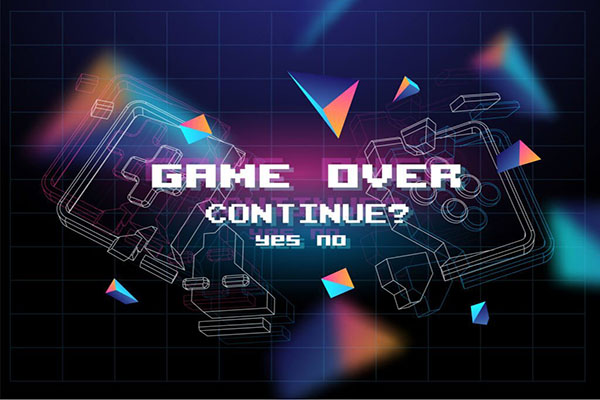
You are a terror, Gene.
I’m not sure if you got the first available kill to you. Did you? I’m trying not to spoil it.
I spent a pretty good chunk of the game with everyone alive.
Here’s one of the things. If a certain character dies early, it makes certain other characters. I’m not sure it’s guaranteed, but those other characters certainly have a much harder time surviving afterward. It became a cascading effect. That’s why I ended up with what I did.
For me, I got two of the main cast killed. One of them, I did not realize that the puzzle that I needed to solve was a basic addition math puzzle. I tried twice. I didn’t do the math because I was picking random numbers. The character I was controlling said, “I don’t get this. Good luck. See you later.” Someone died because I gave up because I didn’t understand the nature of the puzzle.
If anyone is reading this and you feel like I spoiled it, I promise I deleted as many details from that as possible. Remember, numbers exist to be added together. I don’t know that people reading this are necessarily reading because they’re trying to decide what new games to buy. They’re reading for the psychology of how games and genres come together and affect our personalities in the way we choose to play them. Do the math, everyone.
The second kill was me having too much OCD about pointing the shotgun. I thought I had about 0.5 seconds longer to pull the trigger than I did, so just shoot the gun. If you want to defend yourself from a big creepy scary, just shoot them. It doesn’t have to be a perfect shot when you’re holding a shotgun. I regret that deeply, but that is my playthrough.
The cool thing about these games is whether it’s Heavy Rain or Detroit: Become Human or The Quarry, or Until Dawn, the first time you complete these stories, it does feel like that’s your ending. That’s the one you got when you were unaided and not trophy hunting. You weren’t playing as a completionist. That’s just you and living a day of your life. You get one shot. Like now, we get one shot to do this.
Some things we can try again if that’s built into the structure, but we don’t get to do 5:00 PM again. We can try what we did at 5:00 PM again, but it’s not 5:00 PM anymore. That’s what I like so much about these games. I’m going to take your silence as either a sign that a creepy scary got you or you completely agree with me and endorse my response there.
Let’s do the finding our allies because it’s too dangerous to go alone. Gene, we have already found you. You’ve been a part of the whole episode up to this point. Now it’s time for us to talk a little bit about you and what makes your motivation tick as a game player. I like to think that we’ve played a lot of games together over the years, especially if you go back to when I was in college and grad school. That’s when we did most of our co-op journeys together. I had you do the motivation profile just like I do with everyone who joins our show.
We have your hexagon scores for motivation and your player types. Your player type came out as the Bard with a secondary of the Acrobat. Your mottos are playing a part in a grand story. For Acrobat, it’s flexing my reflexes. Tell us a little bit about some of the biggest games that connect with you on that psychological side, why you like them, and how they’ve created your gaming persona as it is now? Those are three big questions all rolled up into one. Tell us a little about what helps you enjoy that Bard-Acrobat combo?
We talked about Dark Soul and Elden Ring before. I believe those partially encapsulate the Bard-Acrobat combo. You are a singular character making their way out into the world. You learn what story you can. You talk to the NPCs, read the items and find the notes. Ultimately, it boils down to your reflexes of how far you can get into that story. I’ve had prior experience with Final Fantasy XIV. It’s similar. You can talk to the NPCs and find the stories, but you got to dodge that tightened land wave. You get knocked out of the platform. Your story is not progressing.
Unless you’re in an instance with other players and they beat the Titan boss without you. That’s also a way that people complete the story in Final Fantasy XIV.
I harken back to the original Realm Reborn release where everyone was weak. Even if one person fell off, it was almost doomed.
Some game challenges are not meant for human consumption. Watch pro players and see how they do weird things you can never actually do in real life. Share on XWe have a level sink and item level sink. We have the echo and all kinds of things. In my experience, one of the things I like about the game is I can go into content by myself. No one is in Discord with me. No one is telling me the mechanics and I can die repeatedly. In fact, people who watched my stream, I’m playing Samurai, which is part of the problem. I was playing in Alliance Raid. The Raid is called Don Make. Maybe that’s it or maybe it’s something else. I’ve only done this 3 or 4 times.
I don’t remember boss to boss very well. Once the fight starts, there are feelings I get where I recognize what’s about to happen sometimes. I’ve never done it as a Samurai, so there’s that too. I know that no matter how many times I need a battle res, we’re going to be the boss. There are 23 other people in the group. That’s a nice feeling of comfort.
I can agree with that. My very first MMO was World of Warcraft. Back then, it was 40-person raids. That was a bit extreme. Corralling 40 people is not nowadays, but there was that level of comfort there. Realistically, many of the people underperformed. The sheer number of people creates redundancy in this system to carry us all through.
That sounds like so many academic programs in faculty rosters. We’re not going to go into that. If you have a 40-person team, what’s the breakdown between the number of tanks, healers and DPS? How does that even work with 40 people?
The fights gained more complexity as a way, but in the very first raids, it was two tanks and twenty-something DPS. It was all about DPS. The rest were healers. It would be like 1 or 2 tanks, 18 healers, and the rest are DPS. In the very early days of raid design, it wasn’t very dynamic. These guys have a bazillion HP. You got to kill them before your healers run out empty. That format was a challenge in itself. With there being only 1 to 2 tank slots in your raiding group, that means they created this psychological vortex around them. Your tanks became de facto the most irreplaceable members of your party. All the tank gear goes to them. If you’re going on to the next raid, you got to bring back the tank that had the best gear to survive the even harder fight. A lot of those gaming guilds back then were dominated by whatever the tank wanted.
You’re saying that if any tank developed a diva mentality, it was earned and well justified.
It was who you could get. In today’s MMOs, there are many options for tanks. There are several. In Final Fantasy XIV, you got at least three tanks that are viable. Back in the original workup days, there was one acceptable tank type. Everyone else couldn’t deal with it.
I feel so bad for the Death Knights right now. I’m assuming that’s the one that you’re saying is maybe not as viable.
From the World of Warcraft perspective, they had multiple tank types, but only one was effective. You had the Warriors. They were your sword and shield. They were Paladin equivalent in XIV. You also have Paladins and Druids who could transform the Bears. The issue with the Druid was when you’re a Bear and you don’t have a shield. You can’t block. You’re taking all the hits at full value. That made the Bears not viable as a tank compared to a Warrior because you need more healing. Your healers run out empty faster. The Paladin didn’t have as many aggro-mitigation tools because a Paladin is partially a buff cast. They’re casting buffs on themselves, doing less tanking and other abilities that keep the monsters on them. It always defaulted to the Warrior.
There are a couple of other games I want to talk with you about before we move to our final academic segment. I want to have a chance to reminisce about that time we were in the top 20 duos in Resident Evil 5 Mercenaries because eventually, Resident Evil Verses is going to come out. There was an announcement for Resident Evil Village’s DLC that establishes an official third-person play-through of the main story. What do you think about Ethan Winters? Ethan finally is in the third person. We get to see him and it establishes him as a visual character. Also, the gameplay of Village, I would like it more. I liked the game a lot, by the way. I just like the remake of Resident Evil 2 and 3 much more than playing Resident Evil 7 and 8.
I share that same feeling.
Do you think someday they’ll go back and add this third person to Resident Evil 7?
I am doubtful about that one because there is the mystery of what exactly you are doing at any given time. That takes away a bit when it’s in the third person. For instance, the segment where you’re crawling around underneath the floorboards while Jack is hunting you. I feel like there are segments of that game that won’t quite translate into a third-person experience.
They don’t have the animations for crawling under those floorboards. They have the floating camera moving through the water and the dirt.
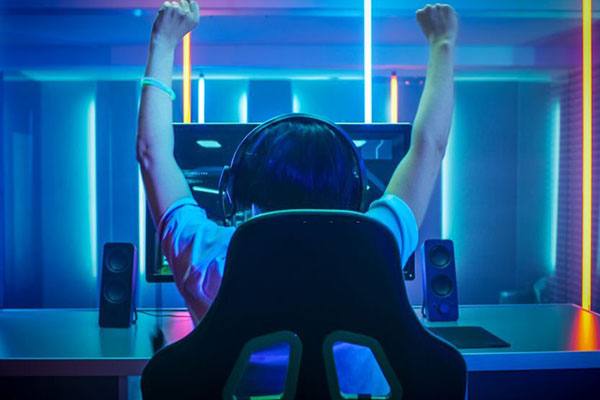
Through the crawl space where there are the weird centipedes coming at you. That one, I’m not saying it’s impossible. They would have to reshoot those scenes in a different context.
That’s true. Do you have any interest in Residential Evil Verse?
I do. I am a little concerned that it is straight-up a typical player-on-player experience and a death match experience. If it was something closer to the old mercenary style where you’re both fighting players and monsters, and there’s a proper balance of that type of mode I am totally on board.
That was the best part. This series is missing Albert Wesker, the triple barrel shotgun, the Magnum and the crazy or a burrow’s mutant skills. Whatever they’re doing right now with vampires, werewolves, all these fairy tale monsters, and I guess Venom and Psychic Girls, it’s almost Resident Evil for me. I sound like I don’t like the last two games. I do like the last two games. I just am not quite seeing them as Resident Evil, except for the fact that Chris Redfield shows up.
I agree with you on a certain level. The thing about the older Resident Evil games was it was very wacky. It was a wackiness that you could enjoy. There’s a giant shark and an alligator. The story or the feel of Resident Evil is best when they actively lean into the wackiness. Things like nemesis are still scary even if you have wacky surroundings. It doesn’t have to be a pure horror trope.
The surroundings in the last two games are devoid of happiness. They’re also devoid of the sense that a prospering world used to be here.
The only spark of joy in the last game is Duke.
That’s true. He’s pretty great. I’m going to switch over to your motivation scores here. We are somehow similar in a few areas and very different in others. I want to pick your brain about that. Both of us have our highest score as mastery. We played well but my score for achievement, which achievements could be completing a difficulty or getting a trophy or following the achievement list. My score there is much higher than yours. You want mastery but you’re not looking for validation from anything in particular other than yourself. That would be a hypothesis I have. Can you help me make sense of how achievement and mastery could be so different for you?
I may or may not have to answer those questions on the survey in a not accurate way. When I was thinking about these achievement-related questions, I was thinking of games like I don’t know if you’ve played an Assassin’s Creed game.
I have.
An Assassin’s Creed game has hundreds of worthless items to collect. Those kinds of things, I do not care about. Achieving something like if you have defeated Malenia in Elden Ring, that’s the achievement I care about because it’s a real struggle to overcome instead of how much time did you spend running around looking for this worthless item.
You confirmed my suspicion. You want to beat the hardest boss on maybe the highest difficulty. You want to play the game well and master the way the game works. You’re not looking for validation in the sense that you collected 100 useless items that you were never going to equip anyway.
Particularly in games where the items are useless. It’s not even a piece of equipment. Here’s another example in the Arkham Asylum series of Batman games.
It’s such a good series.
If you continually walk away from a person you care about, rapport and trust will be lessened until they are depleted. One day, you will find they don't love you anymore. Share on XYes, they are great, but I did not care to find every single last Riddler trophy. I collected a healthy amount of them, but to collect all of them was a mind-numbing experience.
It’s interesting that you would say that because, with me, I will go collect all the items and get the trophy. That’s part of who I am. I used to platinum trophy all of the games that mattered to me during college. That was a big motivating factor for me. I did catch the Riddler in Arkham Asylum and Arkham City. You know why I couldn’t do it in Arkham Night because he was connected to the Batmobile challenges. I hate vehicular challenges. That’s where I draw the line. I want to control the character. I do not care about their cars. It’s not a Batman thing. I don’t care about cars.
I will also agree with that. Another series that I highly enjoy is the Borderlands series. Almost all of those games have vehicle-related challenges that I don’t care about.
You’re able to walk away in a healthy way and not waste parts of your life doing that. I couldn’t say that to the Riddler. It was only because of the stupid Batmobile. All of your other answers are in that one-third affirmative way, immersion, your desire to play action and social. I’m also thinking about another franchise that I would never have played except for you, which is Street Fighter. A lot of that actiony feel you might think is in there because of the martial arts, the special moves, the combos and linking them together. The way that you showed me to play that and be successful is more of a mastery thing as well. It’s there but it’s more of a mastery motivation than an action one.
Particularly for Street Fighter, I would agree. Much of doing well at Street Fighter is a study.
We’ve talked about a few different games like Elden Ring, where there is a study-up component in the process of finding success.
In Street Fighter, every attack has different qualities to it. It’s all about understanding how the quality of one attack interacts with the quality of another attack. To be good at it, it is studying how all your different attacks interact with the game. It’s very technical in the Street Fighter world as opposed to some other games where it’s about the spectacle.
It’s like Marvel vs. Capcom 3. I haven’t played the newest one, but that is a spectacle. There is mastery in there. That one can grab action motivation because you have the three-on-three style and team combos. It’s fun to look at.
If you ask the competitive players, they’ll refer you back to Marvel vs. Capcom 2 when the level of mastery was higher.
I couldn’t do anything in that game, which is one of my biggest regrets as a video game player. I never finished the combo challenges in Marvel vs. Capcom 3 Ultimate. I got stuck on Dr. Strange. I couldn’t do his 7th or 8th link combo. I stopped because I had seven characters left and Dr. Strange broke my streak. I love Dr. Strange so much, big regret. I don’t have access to that game anymore.
I wouldn’t let that make you feel too bad because if you watch videos of even pro players doing these kinds of challenges, you will realize that some of these challenges are not meant for human consumption I would say. Even pro players are doing weird things with their hands like holding them backward. You can never do this in a real fight because your hand is backward in order to activate this combo.
That’s a great amount of information for us. Let’s go on the ascent and elevate the topic. We’re going to return back to the concept of decision-based gaming. I have two academic works to talk about that are an example of how The Quarry and other games like it work. I’m excited to talk about, in particular, that second one. What I will recommend that we both do is we’re going to need to copy and paste that image somewhere where we can see it bigger.
I know no matter what I did with this article, it was not going to show up on the show notes big enough to read the words. That’s the 2×2 quadrant grid from the second part of the first article if you want to see that clearer, but I’m also going to explain it to the audience as well. This is from a conference presentation. This is Tancred et al. from 2018 talking about player choices, game endings, and the design of moral dilemmas in games.
When we break down a game from a narrative perspective, there are two kinds of stories that we consume as game players. The first kind is linear. The second kind is branching. Linear stories are games like Final Fantasy VII or almost anything we talk about on this show in a normal week. The game starts. You get the characters, find your party members, and fight the same bosses in the same places every time. As long as you succeed, you move forward. If you fail, you go back to your last save point. You try again. You succeed and get all the way to the end of the story and the end of the final cut scene. The heroes triumph and you feel good about yourself as a successful player. That’s a linear narrative.
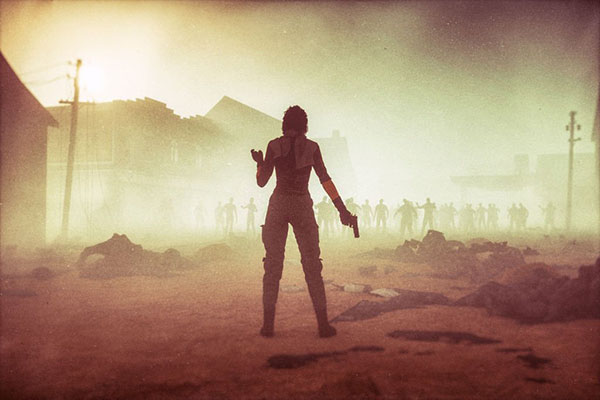
Branching means the endpoint could be the result of specific choices you made along the way, and playing it differently next time could result in a different outcome, situations, characters, and certain places. In linear, you get the same thing every time. The game developers are telling you a story that they’ve written out. In branching, the game developers have created many different possible outcomes for the story. Your actions determine where that story ends up. Gene, before we go any deeper into this, I want to give you a lightning round set of questions here. What is a good example for you of a game you’re fond of that has a linear narrative and a branching narrative?
Linear narrative is Final Fantasy VII, both the original and the remake.
What about branching? What’s a good game for you in terms of branching narrative?
I will go back to the example we already had, Detroit: Become Human.
Those two games are high up on your list of this is what video games are for me.
I guess so.
There are two different kinds of choices that push us through these different narratives. This is cool. I’m so excited that this was talked about in an academic display anywhere. It’s so obvious as game players and someone who would want to write things in academia about video games the fact that someone took the time to research this, get a methodology approved, collect the data, and talk about it. There are systemic choices, which are things that we tend to do throughout our time completing the game.
They have a summative impact on the telling of the story, and then there are scripted choices. Meaning every single player who gets to this part of the story will make a choice, the bird or the cage, the stairs or the hallway, shoot the shotgun or don’t shoot the shotgun. That’s a scripted choice. Whereas a systemic choice is something you bring upon yourself by playing the game. You could miss it. It’s more about the way you choose to play the game itself. It’s like the Little Sisters in BioShock. You don’t have to rescue any of them after the first one.
You could be a very sad version of your character reaching the end. If you do choose to take down the Big Daddies, that is a systemic choice, and you choose to restore or harvest the Little Sisters. That is part of your place style. The desire to take down the Big Daddies is not scripted. They’re wandering around this world, and you might have to go find them. It’s your play style coming out.
I saw it was so cool that they differentiated those and that impacts the narrative in a way. Thinking about this like a game developer, instead of a person who wants to enjoy the game. With those two choices in mind, Gene, are there any games where there’s a systemic choice that unlocks a different outcome for you in a game that sticks out as a great example for you out of the games you have loved? The Riddler getting arrested in Arkham Asylum is a systemic choice.
That is a good example. The example that I was thinking of is a game called Dragon’s Dogma.
I remember when you were playing this. I’ve never played it.
It is a diamond in the rough. Very few people have played it, but it is a great game. Hopefully, it comes back soon because the tenth anniversary is soon. They posted it on their website. Let’s hope something comes out of it. That game has a very interesting cycle of where the beginning and end of the game are. Once you think you’ve beaten the game, you haven’t beaten the game. Whether or not you pursue the true ending of the game is a giant systemic choice. This is not a spoiler, but you had to beat the game twice to get the true ending of the game. After they see the ending, it’s a very cryptic ending. They would not believe that they would probably need to play the game again to find it.
I wonder how many people think they’ve finished it and they didn’t and they had no idea.
Multiple-ended games become character studies for the players in terms of how they connect with the game and what they perceive as their challenges. This gives people a glimpse into their moral alignments. Share on XYou do complete the narrative of the game in the one play-through, but you don’t see the broader philosophical result until the second time you beat it.
That brings us to the coolest part of our academic content from this extended abstract. We have a quadrant-based grid that looks at linear narrative and branching narrative as the Y-axis, and scripted choices versus systemic choices as the X-axis. We’ve talked about Detroit: Become Human. That is on the scripted choices, branching narrative deep down on both axes. It is a highly scripted and branching narrative game. I’ve mentioned the BioShock. It is on the branching narrative systemic choice side. We have the Walking Dead. Did you ever play the Walking Dead games by Telltale?
Only season one.
It’s one of the best games I’ve ever played. It was so good. That is linear narrative scripted choices. Systemic choices and linear narrative is a lot of games, but they’re not games that you would normally identify as “choose your own adventure” games. That part of the grid is very empty but it doesn’t have to be empty. Any game where there are certain endings or plot lines that could be completed or are not going to be completed based on how much of a completionist you wanted to be during the play-through could go in that quadrant.
There’s one game on this chart that I need to talk with you about because I’ve never played it. Many people have told me, “Doc, you need to play this game. You need to stream it. I want to watch every single second of what you have to say about this game.” I’ve never done it. Highly systemic choices and highly branching narrative, Silent Hill 2. I know you’ve played it. I’ve watched you play several Silent Hill games back for a period of time. During college, we played a lot of games together, but not this one. You were playing the ones for PS3 back then. This is the high note of the Silent Hill franchise as what I have come to understand as an outsider. What is this game doing that puts it on this chart in that spot?
It is the fact that there are very innocuous choices that ultimately define you as a player character, obviously the actual play character. This game does things like it judges you on, do you kill monsters and how many? There is a female companion that follows you around in certain sections of the game. How much care did you give to that companion? Do you allow them to take damage from monsters? Do you walk deliberately to not leave them too far behind and get scared? The game judges you on these little minutiae to determine the outcome of the game. It’s very deliberate.
I would say that in my line of work, when I do things that are deliberate, people tend to not like me. It’s the greatest of all time.
Part of that is very hidden. Nothing in the game while you’re playing it says like, “You’re losing friendship clients with this character because you walk too fast.” It is very much a surprise at the end what your actions toward these various characters and what you did in combat did.
I get a sense that a lot of people go through life not realizing that they’re being evaluated that way by other people. I’m talking as a counselor now, not so much a video game player, but a counselor who loves video games. If you have a person you care about and continually walk in a way that leaves them behind, you don’t care if they’re scared, and it’s like “Keep up,” the rapport, the trust and the positivity in the cache of those good qualities are going to be lessened until they’re depleted. You turn around one day and they don’t love you anymore.
As a counselor, I get to interact with that happening all the time. Here it is in Silent Hill 2. Treat people well, be thoughtful, and don’t do things that are so selfish that you don’t realize what’s going on around you. I guess the ending of Silent Hill 2 hinges on you playing this game like you’re the character, and not like it’s a series of checkboxes that you have to complete to get to the end.
Depending on which version of the game you play, it has something like six endings. The level of violence you employ and the level of care, it’s various shades of gray.
It’s on the list too. Monster Hunter and Silent Hill, those are what I’ve got on my list from our conversation. In short, when you take branching narratives and look at scripted choices versus systemic choices, plus the potential for multiple endings, which even our Elden Ring part of our conversation included that multiple ending thing. Why am I beating the game 3, 4, 5 and 6 times? It’s because I have to see all the different kinds of Lord I can become, and all the different ways I can destroy the lands between.
These games, when they do this, they become character studies for the player in terms of how they connect with the game, and what they perceive the challenge of the game is. We get little glimpses into who they are as people in terms of moral alignment. Seeing this as a serious challenge or a bit of escapist entertainment does change this. For example, I remember the first time I picked a dark side choice as my character in Star Wars: The Old Republic, and I killed an incompetent person on Korriban with that choice.
That decision of, “This is who I am in the galaxy far, far away,” meant a lot to me because this character looked like me and was designed to be me that becomes a Sith Master in Star Wars. That was an important moment. That’s moral alignment. Multiple endings and character fates hinge on the way we play games too in terms of taking care of our companions or harvesting Little Sisters. This whole conversation is what I’m here for in terms of being a fan of video games. What is the most memorable ending of a game where you had to choose an ending? Especially from games that maybe we haven’t mentioned yet. Are there any games where there’s an ending that sticks out for you as, “That was a good one to see?”
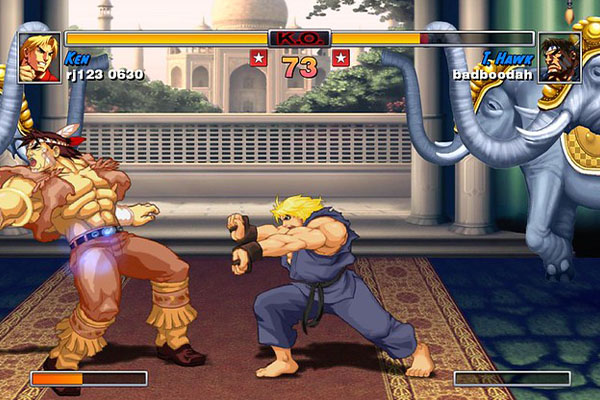
Back to Dragon’s Dogma, that’s in my head. That game is set upon you where you are the Arisen. You’re the chosen one. The basic premise of the game is a dragon attacks you and steals your heart out of you. You end up being this almost undead magical being because your heart was taken out of your body. The quest is I got to go find the dragon and get my heart back so I can be a human. Because you are this special creature known as Arisen, you gained the ability to command these pawns. They are magical people. You call them from different dimensions and they serve you as NPC allies. Pawns are explicitly not people. They are magical servants.
The course of the game is about whether or not the pawn can be a person, much like the AI conundrum of Detroit. The decision of the ending is what do you do about your steadfast ally at the end of the story. You have several options. You can let the world continue as it was. You defeat the dragon, you’re human. You can sacrifice yourself or elevate your pawn and let them be a being or a real person. We’re being vague with the details, even though I’m talking about the end of the game.
That’s a very interesting choice. Killing the dragon, the monomyth, is the crux of the game. Suddenly, you’re thrust into a philosophical choice near the end. It’s a serious choice. These pawns are the only reason you have any validation of being there. Without the pawns, you suck because your character can only be a thing. You can be one class at a time. These pawns fell out of your venturing part. Without them, you’re going to have a bad time. You should treat them as people or not. Who knows?
Come to appreciate them. That factors into your ending. Gene, it has been great talking about this. Let’s finish this and go on our return so we can go back to our daily lives and take our next step forward. There are so many things we talked about. It started with The Quarry. We’ve also given our readers a good sense of all the different games that have become a part of who we are and the way we see the world and why our choices matter.
If you extrapolate this episode, you also begin to see why my research life started with Star Wars: The Old Republic, the character creation aspect, and the morality in your character, and choose your own story. Still, it’s an MMORPG. This stuff means a lot to me. I want to ask you, what are some things that you feel were revealed to you or became more obvious from this conversation that maybe will become a factor in the way you live life or the way you play your next video game?
We talked about Silent Hill 2 a little while ago. When I said it out loud about the sheer deliberateness of the game system, that got me thinking about it. As you said, how do you treat the people around you? If you were to apply that level of deliberateness, you would enter this game to try again the ending to the people around you. How well would that work out?
If you can get a favorable ending in Silent Hill 2, but you have no friends, it’s just you’ve decided very clearly what you’re going to try to do and what you’re going to not do. You know what Yoda says, “Do or do not. There is no try.” Get the good ending in Silent Hill 2, everybody. That is the takeaway. Take care of your teenagers when they’re abandoned at Scary Log Cabin Camp. Don’t align yourself with the dark side, treat your pawns right, take care of the Little Sisters, and all the different things. Make good systemic choices. When things are scripted, you can handle your business too. My final quest for everyone to collect for the day is to choose wisely and continue the journey. See you next time.
Important Links
- @DrGameology – Twitch
- Florida International University
- Apple Podcasts – The Gaming Persona
- Spotify – The Gaming Persona
- Google Podcasts – The Gaming Persona

